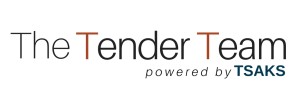About our arboriculture, landscaping and tree management writing service
Our team of tender and bid writers here at The Tender Team have helped many landscaping, grounds maintenance and arboriculture businesses across Australia win government and private sector contracts. From federal, state and local government contracts as well as the private sector, we have helped businesses secure contracts and increase their revenues.
We have a 95% success rate in landscaping and vegetation management tenders and have worked on some of the largest mowing, vegetation, slashing and stump grinding contracts across the country. In this guide, we provide some strategies on how to write wining tenders and are ready to assist clients across Australia win more contracts.
Strategies to help you win
1. Ensure your WHS and QMS documents are tailored to the industry
Government and even private sector procurement teams are quite sophisticated and will take the time to read through your WHS and Quality Management systems and documentations. That means that downloading documentation that is generic and attaching it to your bid or tender is generally not good enough. You need to provide SWMS and other health and safety that is firstly tailored to the landscaping and tree maintenance industry, and secondly, tailored to the types of issues you will typically face in the contract you are bidding for.
The same applies to quality assurance. Government departments want to know that you have tailored quality assurance processes in place that are relevant to your operations. This means practical steps in your systems and processes that are tailored to grounds maintenance and landscaping operations.
2. Tailor your bid to the local area and develop an effective local engagement strategy
It doesn’t matter if you are bidding for a local Council or shire tender or a state government tender. Even if you are tendering for a private enterprise tender, you need to tailor your tender to the local (or state) area you wish to operate in. This will help you score well in the procurement process as it shows that the downstream economic benefits of the tender will flow through to the local community. Some easy ways to benefit the local community (and your chances of scoring well and winning the contract include:
- Talking about how you will hire local employees this can include apprentices or even local contractors and subcontractors the key point is to show that you will hire locals and you will contribute to employment in the local area.
- Detail how you will procure equipment from local businesses and suppliers. This helps ensure the economic benefits of the contract flow through the local community by helping local businesses and also shows that you’ve done your homework as to what local businesses you will support and how.
- It is a great idea to support local community events. Take the time to look at the different local community events you may want to support as well as different charities that you may wish to support. Showing the procurement team that you are serious about supporting a local charity or community event is important as it will show the reader that you are serious about ensuring profits are redistributed into the community where feasible.
3. Detail the benefits of your equipment
Another key point which is critical to discuss when writing your is your equipment. Most businesses focus on their personnel and talk about the experience of their personnel and how much experience they’ve got as an arborist or landscaper. And it’s important.
What is often equally important is your equipment. You need to talk about the equipment you use and what equipment you have invested in. You then need to talk about the benefits of that equipment and how this helps you deliver a more quality service to a local council or even private client.
It’s important here to consider any environmental benefits of the equipment that you’ve purchased or even noise benefits when conducting work in a local government area. Either way, listing and detailing your equipment and demonstrating that you’re a business that is committed to investing in and using innovative equipment in the landscaping industry is important and will strengthen your bid.
Our experience helping arborists, landscapers and vegetation management businesses win contracts
Our team of bid and tender writers have helped businesses across Australia write bids and tenders and wind contracts with the local, state, federal government as well as the private sector. We’ve helped landscaping businesses write bids and tenders to schools, universities, private property management companies, strata management companies and even boutique estates.
Our experience extends across all of Australia, including Melbourne, Sydney, Adelaide, Perth, Brisbane, Darwin and Hobart, as well as in regional areas and remote areas where we’ve helped businesses win some large slashing contracts in the NT and other arboriculture contracts across the country.
Our understanding of the industry extends to all different aspects of the industry. For example, we’ve helped landscapers, arborists, vegetation management businesses, horticulture providers, and even other environmental contractors write tenders and secure government contracts. This means we understand the industry and all the different specific professions associated with it.
Our Director, Jason Cooney, has been riding grounds maintenance and landscaping contracts for over 15 years and has strong experience, particularly in riding to local councils and the state and federal governments. Our team of writers here at The Tender Team have experience helping with all types of industry tenders including:
- Vegetation management
- Arboriculture
- Grounds maintenance
- Landscaping
- Environmental services
- Arborist services
- Large-scale vegetation management
- Landscape maintenance
- Weed and pest control
- Environmental rehabilitation
- Facilities management.
How our team of writers at The Tender Team can help you win your next contract
Our team can help you with the entire bid and tender preparation process for your next landscape, vegetation management or arboriculture tender including:
- Tender identification and bid/no bid decision
- Finding relevant opportunities
- Developing your win themes and understanding the evaluation criteria
- Writing tailored response that reads well and is backed by evidence
- Developing vegetation management and arboriculture plans and methodologies if you require them for the bid
- Preparing operational plans and schedules as well as project management plans
- Helping you put together a value proposition
- Editing your response and creating professional graphics so it reads well and looks great
- Submit it directly or on online portals such as Tenderlink, VendorPanel and ICN Gateway
A track record of winning tenders across Australia
Jason Cooney and our team of writers here at The Tender Team have a track record of winning contracts including:
- Local council contracts in NSW, QLD, VIC, SA and NT.
- Department of Transport and RMS contracts in New South Wales, Queensland, Northern Territory and South Australia.
- Contracts with a range of other state government departments in each state and territory across Australia.
- Private property management companies and strata management companies.
- Private and quasi-government entities including energy companies for tree-clearing works near powerlines.
The types of tenders we have experience working on:
We have experience working on a range of tenders including for works associated with
- Tree removal and stump grinding (including panel appointments)
- Street tree and management contracts as well as urban forestry and clearing
- Vegetation management on roadways and highways
- Commercial landscaping and mowing (for example, we have successfully supported the tenderer of the Brisbane City Council mowing contract
- Weed control and environmental management tenders
- Maintenance of parks, sports grounds and other open spaces.
Our Director, Jason Cooney, is an expert at arboriculture tenders and has been featured in a number of podcasts and industry publications a sample of which is available here: https://www.gotreequotes.com/blog/strategies-win-council-tenders-tree-maintenance-part-2/ and https://www.gotreequotes.com/blog/strategies-win-council-tenders-tree-maintenance/.
Frequently asked questions about our tenders
How do I win more landscaping and vegetation management tenders?
You can win more contracts by:
- Implementing a robust bid / no bid process
- Checking that you comply with all the requirements
- Localising your bid or tender as much as possible
- Putting forward you’re A-team of qualified personnel
- Talking about your equipment
- Coming up with a value proposition and talking about technology and compliance.
Is there a consultancy that can help me write my vegetation, landscaping and grounds maintenance tender?
Yes. Here at The Tender Team, we can help you write your tender from start to finish. We are experienced in helping businesses of all sizes write bids and tenders and win landscaping contracts.
Does The Tender Team specialise in landscaping and tree management and vegetation management bids?
Yes we do. The Tender Team has been helping clients in the landscaping and arboriculture industry for the past ten years. Our Director, Jason Cooney, is highly experienced in these bids and his experience extends to helping clients across Australia from Darwin to Tasmania. We our proud to be considered one of the go to tender writing consultancies for tree management bids and to have been featured in a number of industry magazines.
What can we do to win more local vegetation, landscaping, mowing and tree management contracts both with strata and Council? We keep losing tenders and bids.
In order to increase your chances of success with local government and other bids we suggest you:
- Tailor your bid to the business or local government area
- Explain your pricing and link it to value. Talk about quality and efficiency.
- Conduct a bid/no bid process to ensure you put your best effort into the right opportunities.
- Tailor your safety and other supporting documentation to the specific opportunity.
- For private sector bids especially, invest in graphics to ensure your bid looks polished and professional.
- Call The Tender Team for specialised help or even a review.
What compliance documents do we normally need for a vegetation management or arboriculture tender in Australia?
For any quality tender submission in the landscaping and tree management industry, you need to go beyond the standard compliance documentation such as public and employers liability insurance licenses for your personnel. You generally need to include:
- Attach all relevant NPTC qualifications
- Attach Risk Assessment and Method Statements
- Attach CHAS and other safety accreditions.
- Tailor you SWMS and other safety and quality assurance documents to the sector.
- Comply with any tender-specific requirements, particularly regarding local content.
How will you ensure our bid demonstrates full compliance with state-specific Work Health and Safety (WHS) legislation and requirements, including the mandatory integration of Safe Work Method Statements (SWMS)?
We will work with you to create a compliance checklist. Our Sydney and Australian based bid writers will create a checklist based on the specification documents. We will then work with you to gather and if required create the necessary supporting documentation and submit it with your bid or tender.
What is your process for reviewing the mandatory documentation for an Australian tender, such as our Certificate of Currency for Public Liability and Workers’ Compensation, to ensure we meet the minimum financial and insurance thresholds?
We will do this as part of the tender process to ensure that everything is in order. When you engage our team here at The Tender Team, we will work with you to understand the tender or bid requirements and ensure you comply with them.
For local Council or State Government tenders, how will you showcase our current ISO certifications (e.g., ISO 9001, ISO 14001, ISO 45001) or equivalent management systems to satisfy the Quality, Environmental, and Safety scoring criteria? Do we need to be ISO Certified to win?
It’s excellent that you are ISO Certified and this is a big help especially for government tenders. Sometimes it’s not a dealbreaker. We have helped clients who aren’t ISO certified win contracts. Either way, we will generally showcase your certification, as well as your documentation to show how it has been tailored to your operations and will apply from a practical perspective to help you win local and state government contracts.
If a tree management contract requires adherence to the Australian Standard AS 4970 (Protection of Trees on Development Sites) or AS 4373 (Pruning of Amenity Trees), how will you embed our expertise in those standards within the methodology section? Do you know enough about the standard to write about them and can we reference the Australian standards in our response?
Our team of expert writers at The Tender Team will assist you to write a robust methodology for Tree Management, vegetation management and other arboriculture bids and tenders. Where Australian Standards are referenced in the specification documents, we will ensure compliance with these are integrated into the methodology as well as in other areas of the bid (for example case studies). When writing a compelling bid, you need to clearly explain how your proposed methodology complies with Australian standards and enables you to deliver a quality service over the term of the contract. A quality methodology increases your chances of winning a contract in Australia with a local Council, or the state or federal government.
Can you help us write our local value or social procurement response? Do you know how to write a response that complies with the state policies (for example the Victoria First program or Queensland Local Buy)?
Yes. Our team of bid and tender writers will help you write a compelling local value response. We understand the different preferences and requirements of each state government and have written tenders and bids to most local Councils such as City of Sydney, Brisbane City Council and others. We will help you develop a local value response that shows you are committed to the triple bottom line – economic, social and environmental benefit for your local community. We also know how to cover ‘social return on investment’ and talk about indigenous engagement and contributing to the aboriginal community. Where there are questions on local employment or economic benefit, our writers at The Tender Team can also assist and we will integrate employment benefits into your overall social value response and ensure they are actionable and achievable.
We have to respond to a tender for vegetation clearing near rail lines and power lines. Can you write a methodology for us that shows we comply with utility-specific codes?
Yes – although we will certainly work with your technical team to write a methodology that reflects your proposed operations. We will worth with you to ensure we integrate any utility specific safe work method procedures into your methodology.
Can you guarantee we will win the tender or contract if we use the help of The Tender Team to write our bid?
No. There are other factors such as price which we have no control over. We will however, work with you and integrate strategies to help you win your next contract. For example, we will present your A-team and tailor your CVs and Bios of your personnel to the opportunity. This will be supported by their relevant qualifications such as Arborist Cert III/IV, White Card and ChemCert).
Are you a specialised consultant that can help us write and win more arboriculture tenders?
Yes. The Tender Team is headed by Jason Cooney and we are a specialist bid writing consultancy that helps arboriculture, tree management and other businesses across Australia win contracts with local council, state government and the federal government.








